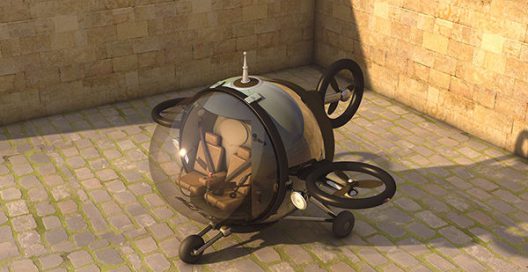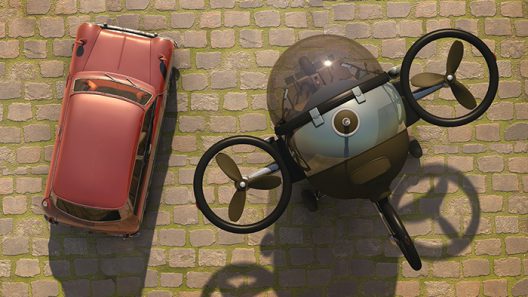P3 is a new and different type of consulting service for a new and different kind of industry – electric aviation. Consulting businesses usually manage to help others manage fairly conventional and well-traveled projects, limiting their practice to advising on how to meet budget and project timelines. These are valuable insights that can help technical gurus overcome business issues, or management teams understand new technology.
But what happens when a whole industry is exploring new paradigms, shaping new world views and delving into areas that did not exist a short time before? One consulting firm that did not exist before 1996 is making inroads into that unexplored territory. A spin-off from RWTH University in Aachen, Germany, P3 started with a quality management project at Daimler. In quick order, the founder expanded the business into a global enterprise with over 3,000 consultants, engineers and entrepreneurs and more than 30 subsidiaries and locations, including Dallas, Detroit, greater New York, Greenville, Los Angeles and Montreal in North America.

When future flight doesn’t resemble the past, how do you press forward? The Fly™ Citycopter has a control stick and a pair of cup-holders, but all else is not terribly familiar in this conceptual rendering
Sascha Kempf, a project manager for P3, explains part of the firm’s growth. “The concept of P3 is not only to advise customers, but to support them. This means P3 is a hybrid of a management consultancy and an engineering service company and they work with their customers all the way from strategy to implementation, which is a rare combination. As a technology driven organization with a German engineering background, P3 customers mostly consist of large corporations as well as small- and medium-sized enterprises and start-ups in the aviation, automotive, energy and telecommunications sector. “
He explains the company’s relative lack of name recognition is an acceptable part of its approach. “Probably you have never heard of them and that is totally fine. The success of the company is definitely not due to extensive marketing activities, as new projects usually develop out of direct customer recommendations and marketing has long been kept to a minimum. Co-Founder and CEO Christoph Theis jokes, that “people who apply at P3 already passed the first test, because they found us.” The diverse company portfolio also includes products like for example an innovative fire extinguisher or a cockpit electronic flight bag mount certified for aerospace applications.”

Analogies to automotive experience aren’t always helpful – especially as cars change dramatically
The multiple disciplines and expertise presented by project teams enable them to solve complex problems with multiple technology roots. “The team consists of mechanical and aerospace engineers, operations and marketing professionals, software and communication specialists, electrical and energy engineers, management consultants and project managers. Thomas Prefi, Co-Founder and CEO says: ‘For the complex and fast-paced technology projects of the future, cross-disciplinary competence and expert-generalists are key to success.’”
Sascha explains how this works for aeronautical projects. “The P3 E-Flying team concentrates on 3 major markets, which are VTOLs and the on-demand mobility concept, thin-haul commuter aircraft for short-range applications and hybrid-electric airliner and transport aircraft. Additionally, P3 E-Flying provides technology consulting services (battery, power electronics, e-motors, cost analysis), project- and program management support and customer-specific engineering solutions.”
Sascha adds, “Aviation aiming to become more sustainable should learn from the lessons and traps other e-mobility sectors like automotive already face, especially when it comes to battery technology, charging and infrastructure, change management and the overall acceptance of clean-tech innovations.”
Commenting on the Uber Elevate Summit 2017 in Dallas, Sascha notes, “It became clear that electric and hybrid aviation needs collaboration partners from different backgrounds. Seemingly, the hidden champion P3 took a step in the right direction contributing to sustainable skies.”
Asked if P3’s experience with GPRS (General packet radio service), a mobile device communications network used in some “connected car” applications would be applicable to autonomous aircraft, Sascha explained that the technology involved is less a problem than the regulatory aspects.

Future flight might allow human control in an otherwise automated sky. How will we integrate these elements?
“GPRS might be a possible technology for autonomous aircraft, but as it is with the powertrain except for batteries, one of the biggest challenges will not be technology, it will be certification for aerospace purposes. What P3 can do is to provide solutions that work for telecommunications, the connected car and the future autonomous cars and transfer best practices to aviation. Basically, an autonomous aircraft is not more difficult to code than an autonomous car as you already have autopilot systems and not as much obstacles and scenarios you have to consider, only at Take-off and Landing. Nonetheless, especially for VTOLs, a sophisticated sense-and-avoid-, birdstrike-, cybersecurity- and a rogue-pilot-protection system are necessary. When it comes to air traffic management again technology will solve a lot of problems but the transition phase will require a lot (Overhauled airspace structure, better air-to-air communication, charging grid infrastructure, etc.).”
He refers to projects in which P3 helped clients develop digital instrumentation for their vehicles, assisted another in achieving cost limits for power electronics, and yet another on calculating best practices and outcomes for high and low-voltage battery systems. For one German car maker, P3 helped create a customer care roadmap, expediting customer service issues. The firm assisted in finding optimum uses for batteries that had reached the end of service lives in vehicles, and finally determined the best way to recycle spent batteries. P3 gave the car maker principles they used to launch a new model electric car, relying on demonstrated ideas developed across many new challenges.
Sascha defines an approach certain to appeal to potential clients. “Our project management approach is that we keep the communication to our customers so close, that contradictory requirements always end in the customer’s best interest and not ours.” Multi-discipline teams decide .on courses of action that will improve on the client’s ideas.
P3 has grown to 30 subsidiaries, including e-flight, batteries, etc., challenging traditional management practices. They reach out to technical universities in Germany and the University of Michigan in America. They are now negotiating efforts with MIT and Stanford for the P3 E-Flying Team.
New technologies require new approaches, and P3 seems to be open to exploring new directions in sustainable aviation.
(All renderings of the Fly™ Citycopter are from this source.)

